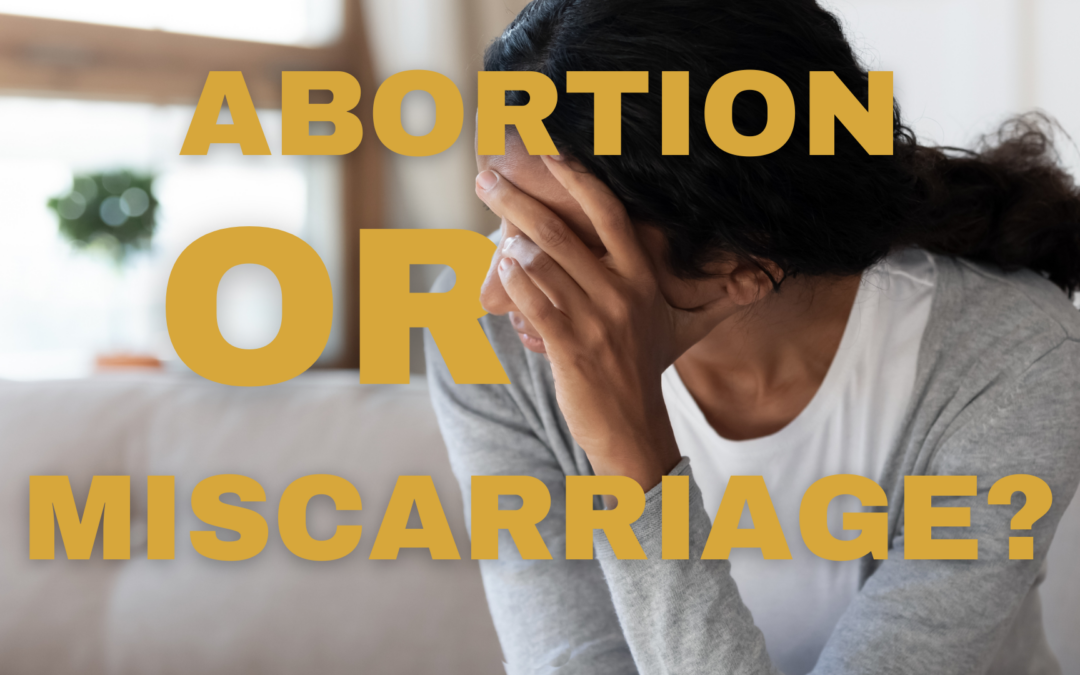Miscarriage vs. Abortion: Are They the Same?
Facing an unplanned pregnancy can be a very emotional experience, and for many women, navigating the conversations around pregnancy loss can be equally confusing. There is one question that arises frequently: “Is a miscarriage the same as an abortion?”
If you’re not sure how these terms differ, you’re not alone. Many, especially Gen Z and millennial women, are navigating a world where reproductive health information is often mixed with political and social debates. We’ll hopefully help clear up some confusion and provide factual, empathetic information on the topic.
What Is a Miscarriage?
A miscarriage is the natural loss of a pregnancy before the 20th week of gestation. According to the American College of Obstetricians and Gynecologists (ACOG), miscarriages occur in about 10-20% of known pregnancies, though the actual number may be higher, as some may occur before a woman even realizes she’s pregnant.
A miscarriages may happen for a variety of reasons. However, things like exercise, sexual intercourse, or emotional stress do not cause a miscarriage.
If you believe you may be experiencing a miscarriage, it’s essential to seek support—both medical and emotional. Many women find comfort in knowing that they are not alone.
What Is an Abortion?
An abortion is a medical procedure to voluntarily end a pregnancy.
While some might use the term “spontaneous abortion” medically to describe a miscarriage, it is crucial to understand that a miscarriage is not a decision. It is an involuntary loss, whereas an abortion involves an active decision to end the pregnancy.
Miscarriage & Abortion Are Not the Same
Using the right terminology is important. Although both terms involve pregnancy loss, the critical difference lies in whether the loss is natural (miscarriage) or intentional (abortion).
Perhaps surprising, the emotional weight of an abortion is different than that of a miscarriage. Women who experience miscarriages may feel grief, guilt, or confusion, and they deserve empathy, support, and accurate information. No woman should ever feel shame for experiencing a miscarriage. In regards to abortion, many women do not realize that terminating a pregnancy is often accompanied by emotional and relational difficulties too. While it is often a different type of grief than what is experienced after a miscarriage, some women who terminate may feel a greater sense of guilt or shame.
Why Language Matters
In today’s conversations around reproductive health, it’s easy for terms to get muddled, especially with the rise of misinformation online. For Gen Z and millennial women who are navigating these spaces digitally, it’s essential to rely on accurate and medically supported information.
Seek help at no cost from a local pregnancy resource center here.
When to Seek Medical Help After a Miscarriage
If you believe you’re experiencing a miscarriage, it’s essential to seek medical attention right away. Signs of miscarriage include:
- Vaginal bleeding or spotting
- Severe abdominal pain or cramping
- Passing tissue from the vagina
Your healthcare provider will offer the support and care you need, and they can also discuss the emotional and physical aspects of recovery after a miscarriage.
Support and Resources for Both
If you’ve experienced a miscarriage OR an abortion, know that support is available. Many women find comfort in counseling, support groups, and talking about their loss with friends and family. You are not alone in this journey. A pregnancy center will be able to also provide confidential support. Find your nearest center here. Make an appointment with us here.
Disclaimer: Not a medical professional. Always consult with your healthcare provider.
Sources:
- American College of Obstetricians and Gynecologists (ACOG) – www.acog.org
- March of Dimes – www.marchofdimes.org
- American Pregnancy Association – www.americanpregnancy.org
- Mayo Clinic – www.mayoclinic.org

